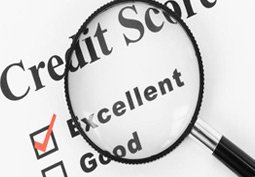What is your credit score?
I’ve said it before and I’ll probably say it again –your credit score is one of the most important numbers in your life. This three-digit number essentially acts as your financial report card, except there’s no leaving it behind after graduation. Your credit score is used to represent your creditworthiness, which translates into the likelihood that you’ll pay your debts in a timely manner.
If managed wisely, it can bring you peace of mind and result into dollars in your pocket via low interest rates and higher credit limits. If not managed properly, your credit score can delay your ability to reach goals and result in you spending more money than necessary to make up for past mistakes.
What makes up your score?
There are five elements that make up your FICO (Fair Isaac and Company) credit score:
- 35% of your score is based on how you pay your bills. (Are you paying on time or often late or missing payments?)
- 30% of your score is based on the amount of money you owe and the amount of available credit to you.
- 15% is based on the length of your credit history.
- 10% is based on the mix of your credit accounts. This involves both revolving credit, such as credit cards, and installment credit, such as mortgages and car loans.
- The final 10% is based on new credit applications.
FICO score range:
Your FICO score will range from 300-850. The higher the number, the better. The breakdown of credit score ranges can vary, but this is a good overview:
- 720-850: Excellent
- 690-719: Good credit
- 630-689: Fair (average) credit
- 580- 630: Poor credit
- <580: Bad Credit
How to make sure your credit report/score is accurate:
To start, use a website such as annualcreditreport.com or creditkarma.com to obtain your credit report and look for discrepancies. If you find anything, you should immediately contact both the credit reporting agency and the company that is portraying inaccurate information. There will likely be phone calls, letters and e-mails involved to get it updated. It may be a headache, but having a good credit score translates into a lot of dollars back in your pocket.
How often you should be monitoring your report and checking your credit score:
A minimum of once a year to check for accuracy and potential fraud attempts. If you’ve been a victim of identity theft, enrolling in some type of credit monitoring service may be best for your score and your peace of mind going forward.
Tips for protecting your credit report and having a strong credit score:
- Since how you pay your bills accounts for 35% of your score, it’s essential that you pay your bills on time. If you’re late on a consistent basis, or have been sent to collections, that can definitely hurt your score. This doesn’t just apply to credit card accounts. It also takes into account utilities, retail accounts, installment loans, finance company accounts and mortgages. Note: How recent and the frequency of late payments matters.
- Ensure your credit cards are carrying a low or zero balance. Having maxed out cards translates into a low amount of available credit (meaning lenders think you need to borrow funds to live day to day or aren’t tracking your spending closely) and therefore lowers your score. When you’re perceived as overextended, it translates into a higher risk credit score. Note: Closing credit card accounts that have a zero balance and are in good standing will not raise your credit score and will reflect a decrease in the amount of credit available to you. Understand the pros and cons of closing credit card accounts before taking action.
- Start building your credit NOW. The longer you’ve displayed a responsible credit history, the higher your score.
- Be proactive. If there’s an issue that you foresee, such as being late on a payment, a bounced check or anything else of the matter – reach out to the company or creditor to give them a heads up. You’ll likely establish higher rapport and will prevent them from having to track you down. You may even be able to get any fees associated with the mishap waived.
Want more information on taking control of your financial life? Get on the Workable Wealth Insider List for instant access to 9 Steps to Workable Wealth, a guide to getting in your best financial shape yet!
Mary Beth Storjohann, CFP® is the Founder of Workable Wealth and is a Financial Planner for Gen Y. She works as a writer, speaker and financial coach and is passionate about working with individuals and couples in their 20s and 30s to help them plan for and navigate through the financial questions and issues that arise during their post-quarter-life transitions. You can also follow Mary Beth on Twitter and Facebook.



